May 16, 2025 | 00:35 GMT +7
May 16, 2025 | 00:35 GMT +7
Hotline: 0913.378.918
May 16, 2025 | 00:35 GMT +7
Hotline: 0913.378.918
The situation of rice export is volatile, creating many opportunities and challenges for Vietnamese rice. What do farmers and the rice industry need to prepare to seize market opportunities and overcome existing difficulties?
We discussed this issue with Tran Thanh Vu, General Director of Syngenta Vietnam Co., Ltd - a member of a leading global corporation in the agricultural sector with headquarters in Switzerland.
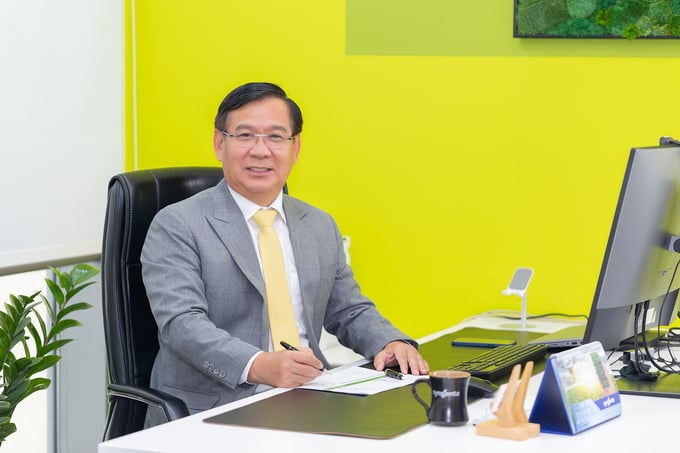
Tran Thanh Vu, General Director of Syngenta Vietnam Co., Ltd.
As a leading enterprise in the agricultural industry, how does Syngenta Vietnam assess the current situation of rice exports worldwide and in Vietnam?
In the last 3 years, Vietnam's rice export output has grown well: From 6.15 million tons in 2020 to 6.2 million tons in 2021 and up to 7.1 million tons in 2022. In the first 6 months of 2023, Vietnam exported 4.24 million tons of rice, expecting to reach the export target of 8 million tons this year.
However, the reality shows that the world rice market has been particularly volatile in recent years. Output for food production is significantly affected by competition between major economies, increasing protectionism, high inflation, and tight monetary policy in key markets. However, I think that Vietnam's rice export prospects are still very positive, especially when India, the United Arab Emirates (UAE), and Russia have banned rice exports, rice production in many countries in Asia is also at risk of a decline due to the impact of El Nino.
These factors will boost the demand and price of rice in the international market. This also means that Vietnam is facing a golden opportunity to prove the quality of rice and speed up the export race compared to its competitors. Vietnam can use this potential leverage to reach new groups of rice-importing countries, thereby paving the way for long-term and sustainable export of Vietnamese rice.
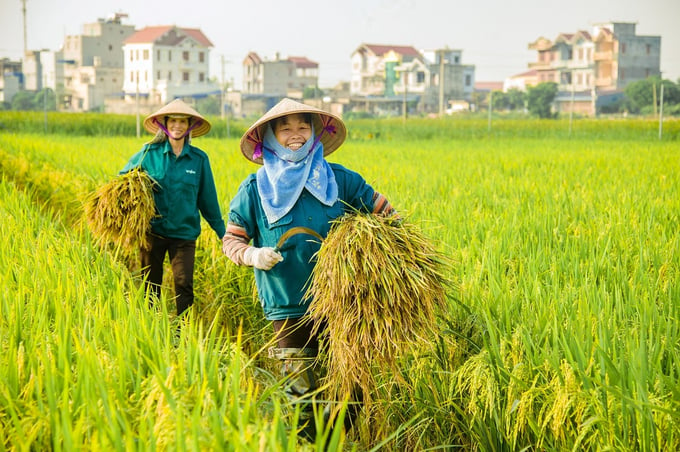
Vietnam is facing a golden opportunity to prove the quality of rice.
Opportunities abound, but do you think the challenges exist?
The difficulties of the rice industry have existed for a long time. It is not until this stage that they appear. I noticed that the technical level of farmers has recently improved, and many models of agricultural extension and application of effective farming solutions have been gradually implemented.
However, in general, farmers still face many difficulties. For example, it requires increasing productivity but reducing the amount of irrigation water and inputs, responding to climate change, and especially the increased pressure of pests and diseases. It is also necessary to strengthen the application of new technologies and apply mechanization to production to increase the efficiency of investment in rice production.
So for the rice industry to take advantage of this opportunity, create a premise to overcome difficulties, and develop more outstandingly, what do you think is the issue to focus on?
The management agencies are currently facilitating the development of large-scale rice farming models to create large production areas - this direction is very good. Also, functional departments and leading companies in the agricultural sector, such as Syngenta, need to jointly support and coordinate to find new high-quality rice varieties suitable for Vietnam's soil, coordinate cultivating training and using pesticides for farmers, as well as create conditions for the application of modern technological advances to rice cultivation.
I appreciate the close cooperation between the components in the rice production chain, as this is an effective way to encourage farmers to approach new ways of doing things and apply new thinking in farming. When farmers see the effectiveness of advanced solutions, they will confidently apply them to their rice fields. Thus, new deployment models will not only stop at the scale of demonstration fields but will be replicated in strategic planting areas, positively impacting the rice industry.
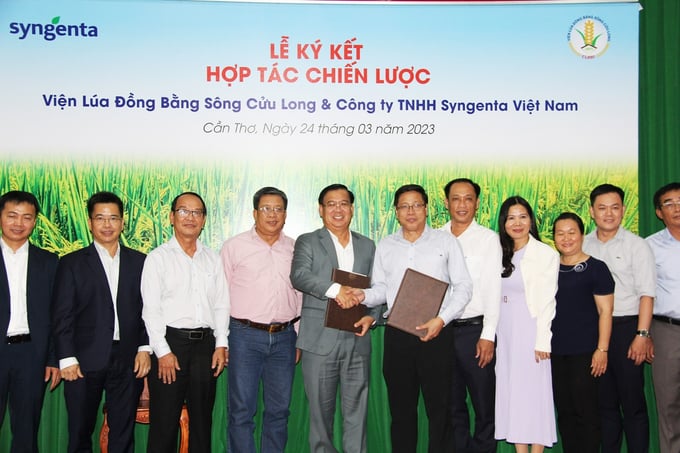
Cooperation signing ceremony between Syngenta Vietnam and Mekong Delta Rice Institute.
As a leading enterprise in the industry, how has Syngenta Vietnam acted and contributed to the rice industry in particular and agriculture in general, sir?
Syngenta has a longstanding strength in research and development as a global corporation in agro-pharmaceuticals and seeds. Based on that, we have been actively contributing to large-scale sustainable commodity rice production through many activities. For example, the cooperation between Syngenta and the Mekong Delta Rice Institute (CLRRI) aims to strengthen the research and development of plant varieties, especially pure rice varieties, testing and evaluating rice varieties and coordinating rice varieties grain, technical and technology transfer in 3 years (2023 - 2025).
We have cooperated with many large rice producers to conduct demonstration models of rice cultivation applying SRP standards using Syngenta's GroMore solution. GroMore is an integrated solution in rice farming deployed by Syngenta to transfer to farmers the process of harmoniously combining advanced technical measures in rice production such as seed selection, soil preparation, water management, fertilizer application, safe and effective use of pesticides, post-harvest management, etc. The results were very positive when there was a significant improvement in yield, quality, appropriate residue management, and improved profitability for farmers.
In addition, Syngenta Vietnam also cooperates with the National Agricultural Extension Center to apply mechanization to rice production, typically using drones to spray pesticides. Farmers participating in the model are very excited when the pest is well controlled, reducing the number of sprays, saving production costs, and stabilizing yields.
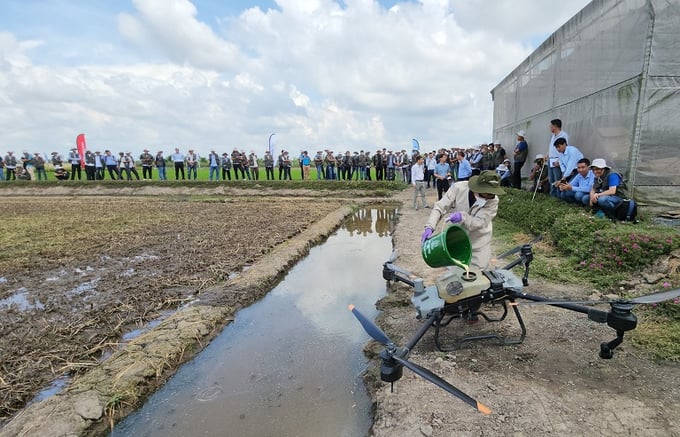
Syngenta trial application of drone spraying pesticides on rice.
In addition, to find a solution to the problem of labor shortage in agricultural production, especially skilled labor for high-tech agriculture, we have promoted cooperation and technology transfer with other leading human resource training institutions in the country, such as the Vietnam Academy of Agriculture, Can Tho University, University of Agriculture and Forestry in Ho Chi Minh City, etc. Thereby, Syngenta helps to provide modern technologies to serve the training process. Create high-quality human resources for the rice industry and agriculture in general.
It can be said that with a foundation of crop science built from a long history of 250 years, our technology has been and will help millions of Vietnamese farmers to access advanced agricultural methods to produce rice efficiently, with a good season, at a reasonable price.
I am proud of Syngenta's more than three decades of development in Vietnam, which has always been associated with the advancements of the agricultural industry, and we will continue to do so to improve the quality and raise the level of Vietnamese rice. South, conquering domestic and international consumers.
Thank you for your time!
Translated by Ha Phuc

(VAN) Use of high-quality broodstock and biotechnology is regarded as the most effective approach to ensuring sustainable and economically viable shrimp aquaculture ahead of climate change and the emergence of increasingly intricate disease patterns.

(VAN) Carbon farming is a form of agricultural practices that helps absorb more greenhouse gases than it emits, through smart management of soil, crops, and livestock.

(VAN) This is a key content of the Memorandum of Understanding recently signed between the Vietnam Fisheries Society and Kunihiro Inc of Japan.

(VAN) To achieve the goal, local authorities and businesses in Kon Tum province have fully prepared the necessary conditions for the new Ngoc Linh ginseng planting season.
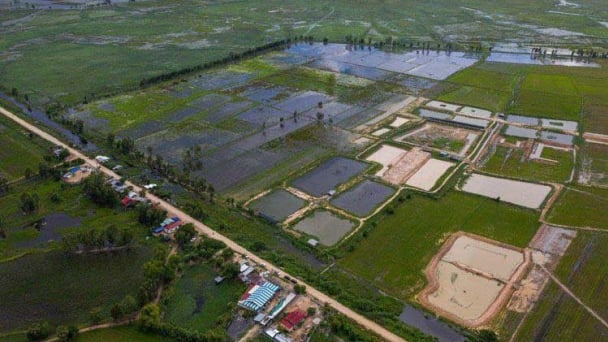
(VAN) Jiangsu province is gearing up to host training programs in Phnom Penh, the capital of Cambodia, this year to establish the Fish and Rice Corridor.
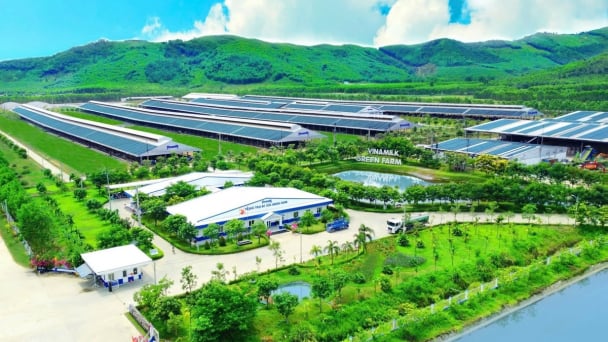
(VAN) Le Hoang Minh, representing Vinamilk, shared the company's experience in energy saving and green energy transition for production at a workshop held during the P4G Summit.
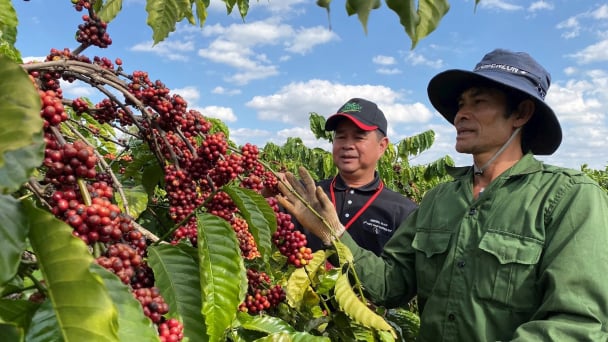
(VAN) Businesses emphasize fairness and equality when integrating social factors into their sustainable development strategies.